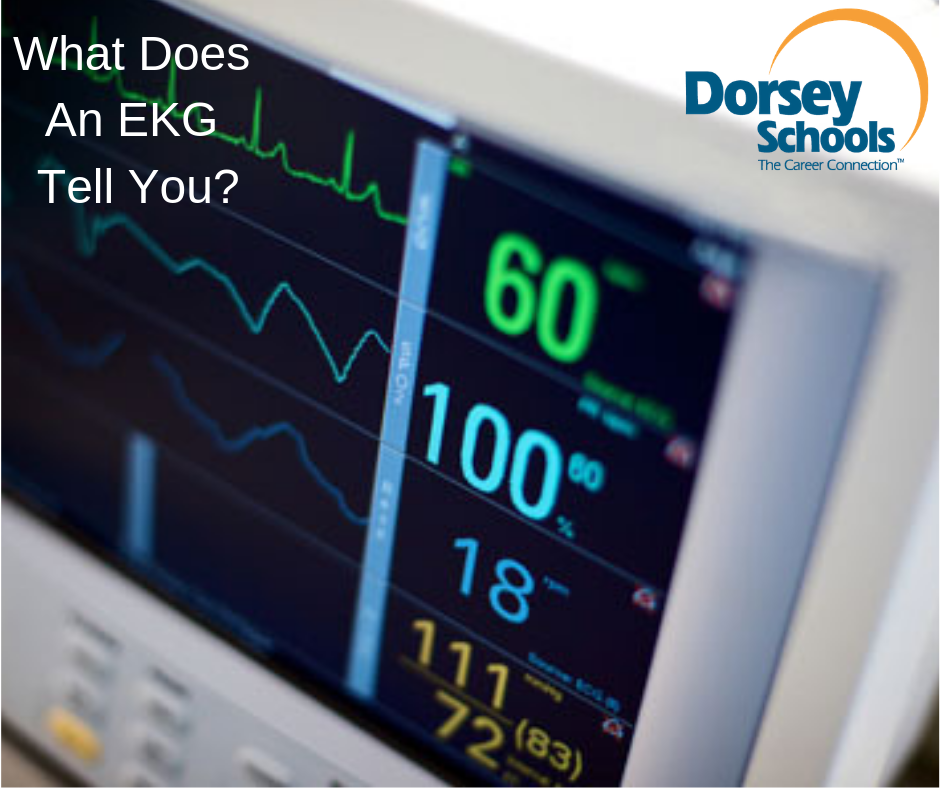Keeping a healthy heart is at the core of any human’s life. A healthy heart can lead to a healthy life. A way to check your heart health is by checking and monitoring your heart’s status by having an EKG test. You might be wondering what an EKG test is for? An EKG test a diagnostic test that is used to check the heart. EKG is a shortened term for the word ‘electrocardiogram.’ It is also not uncommon to see an EKG referred to as an ECG. An electrocardiogram is used to detect heart abnormalities and overall heart status. Below, we will discuss what an EKG tests for as well as what to expect during and after an EKG.
The content in this blog is meant for informational use only. It is best to contact your physician or a medical professional should you have any questions or concerns regarding your health.
What an EKG Tests For: Heart Rhythm Monitoring
As stated before, heart rhythm monitoring through an EKG check is one way to track your heart’s health. A common way to monitor your heart’s status is to check on its electrical activity. An electrocardiogram is designed to track and record the electric impulses of the heart muscle which also tracks the heart rate and rhythm. It produces an image that looks like waves on a graph. These waves are interpreted by a medical professional who then determines if it is normal and decides if further testing is needed.
What Happens During an EKG Test
So what happens during an EKG test? As they are preparing for the test, the patient is draped in what could be called a cape. The patient will lay on the testing table, chest up, and the EKG Tech or Medical Assistant will place sticky pads (electrodes) on the body. After the electrodes are properly placed, they will begin the EKG test. Your EKG Tech or Medical Assistant may tell you to be calm and relax, that’s normal, as an EKG is a quick and painless process. It is also important to note that an EKG test does not administer any electricity through your body, it only reads the body’s existing electric current.
After you complete your EKG testing, your physician will either come and see you to discuss your results, or they will schedule an appointment for you to come in at a later date.
As previously stated, if you have any questions about your health, or think you may need an EKG, it is best to seek advice from a medical care provider. It’s best to know what’s going on with your body before something goes wrong.
EKG Training | Medical Assistant program | Dorsey Schools in Michigan
Dorsey Schools’ Medical Assistant training program is available at six of our campus locations in Michigan. The Medical Assistant program can be completed in just one year. While in the Medical Assistant program, students will have the opportunity to learn about running EKG tests in addition to several other medical related skills such as phlebotomy, CPR and more.
Our Medical Assistant program includes both comprehensive clinical and administrative training. The Medical Assistant program also offers the opportunity to participate in a medical externship where students will be placed in an occupational setting to further their skills training before graduation.
If you are interested in learning more about our Medical Assistant training program or have any questions, please reach out to us here . Dorsey Schools is a career training school. Our goal is to provide our students with the best training possible as they prepare for their new career.
Sources:
https://www.webmd.com/heart-disease/electrocardiogram-ekgs#1
https://www.webmd.com/heart-disease/electrocardiogram-ekgs#1-3
https://www.mayoclinic.org/tests-procedures/ekg/about/pac-20384983
http://www.bloodpressureuk.org/BloodPressureandyou/Medicaltests/ECG
https://www.heart.org/en/health-topics/high-blood-pressure/health-threats-from-high-blood-pressure/how-high-blood-pressure-can-lead-to-a-heart-attack
http://www.vacardio.com/for-patients/blog/ekg-cardiovascular-test-purpose/
http://www.vacardio.com/for-patients/blog/ekg-cardiovascular-test-purpose/

